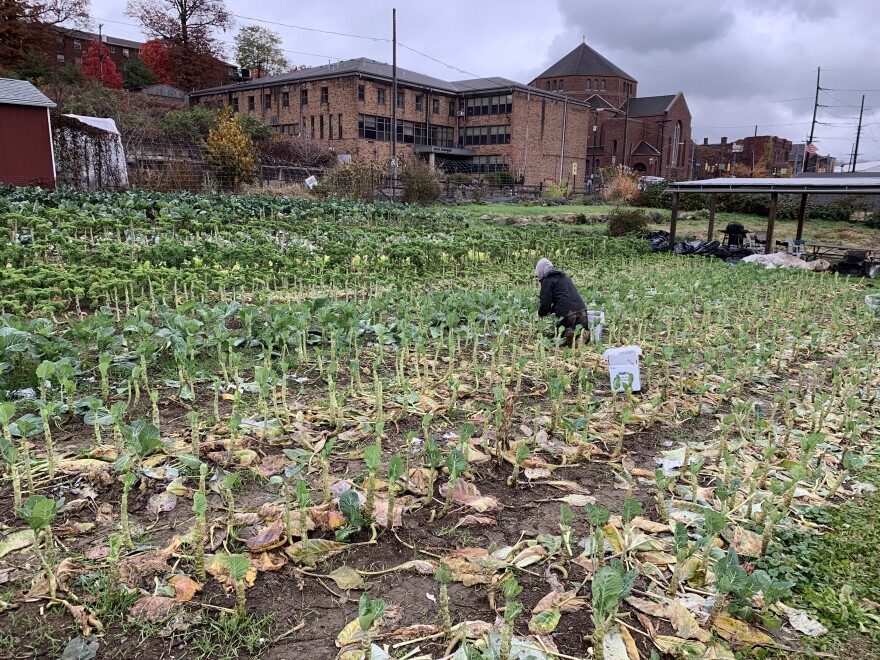With its harvest set to end Friday, Braddock Farms is celebrating its first season running a pre-apprenticeship program for local teens with no prior experience in agriculture.
Eight students from in and around Braddock and Wilkinsburg participated in the initiative. Ranging in ages from 14 to 18, they learned how to raise and harvest crops under the guidance of staff at Grow Pittsburgh. The nonprofit oversees the program in partnership with Pasa Sustainable Agriculture and with support from the Pennsylvania Department of Agriculture.

Robert Grey, farm education outreach coordinator at Grow Pittsburgh, said pre-apprenticeships provide a stepping stone to agriculture for people who are underrepresented in the sector.
“Farming is a very family-focused type of thing,” he said. “And so if you don't already have an in into the agriculture industry, through your family farm or neighbors in a rural area, it's much harder to get into agriculture.”
By building a new pipeline of talent, pre-apprenticeships can help to boost racial and ethnic diversity in the agricultural industry, Grey added.
“There's this idea that I sometimes hear in the Black community that there's too many white farmers when in fact it is that there's not enough Black farmers,” he said.
Federal estimates show that people who run farms in Pennsylvania are 99% white.
In recent years, the state’s Department of Agriculture has worked to expand apprenticeship and pre-apprenticeship opportunities, partly in an effort to head off an impending labor shortage.
To graduate from the pre-apprenticeship program, participants must complete 225 hours of on-the-job training and 25 hours of related technical instruction. The experience will allow them to qualify for a full-time, paid apprenticeship administered by Pasa.




